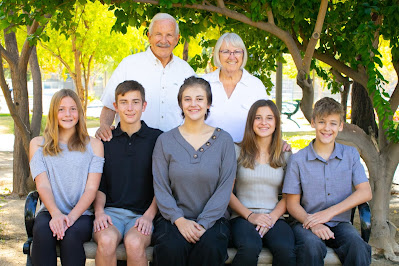The LA Times recently had an interesting editorial about the value of a
STEM (science, tech, engineering and math) education verses liberal arts.
Normally, I wouldn’t have paid much attention to the subject matter but with
one grandchild graduating from high school next spring and more coming up fast
behind her, I thought it quite compelling and relevant to their and my own
education.
So, I’ve taken the liberty of editing that editorial and interjecting
my own thoughts along the way.
College
philosophy departments — along with the other humanities and the social
sciences are shrinking with reduced fields of study, smaller teaching staffs
and fewer courses.
Part
of this shrinkage in many big universities and smaller colleges as well is the
result of rising concerns about the cost of a college degree, which can leave
graduates and parents in serious debt for years or decades.
With the advantage of my own time spent on this planet and a secure
retirement as a comfortable landing pad, I can look back at my own education
and career and ponder what might have been had STEM garnered such importance in
my own working world.
Students
understandably want to feel that their investment of time and money will pay
off in the not-too-far future. A STEM degree — science, tech, engineering and
math — often opens up more and better-paid career opportunities than those in
other majors. As a result, fewer students are signing up for non-STEM majors
and courses, and colleges, already wondering how they’ll survive declines in
enrollment, are in turn shrinking those departments.
University
humanities and social sciences departments also have been demonized by the far
right as hotbeds of “wokeism,” fuzzy thinking and rampant liberalism, where
some conservative students and professors say they’re made to feel unwelcome when
they are not taking a progressive stance.
Having heard that, I couldn’t help but ponder what, if anything, is
going to come from Nana’s art and cooking classes she always conducts when
she’s with the grandkids. In addition, putting on a scripted reading play is
now part of ‘vacation at Nana’s.’ Those young people of mine are also big-time
travelers throughout the United States and abroad. One has to wonder what, if
anything, those experiences have done to enrich and educate their young minds.
I know from personal experience that living in Europe was both an
eye-opener and cerebral adventure for me. I learned and experienced more in a
week among the canals of Amsterdam than any class in college. After-hours was
even more educational.
I’m old enough to remember when American businesses were told to watch
and emulate the Japanese business model because they were soon going to rule
the world. After the Japanese, it was the Chinese who were on that rocket path
to success for its businesses. Both cultures seemed to embraced the STEM-type
of approach to education for their children. Neither seemed to respect or honor
the arts other than a side experiment in feeling good about one’s self and
perhaps creating something new once in a while. I think Silicon Valley might
agree.
As
the LA Times editorial pointed out: ‘There’s nothing wrong with supporting STEM
majors, which provide a path to well-paid, meaningful and fulfilling jobs. But
universities were never meant to be merely career-prep schools. They also teach
— or should teach — students how to think deeply and critically, analyze
smartly, bring people together collaboratively, communicate articulately, as
well as innovate and create. All of these traits are at the heart of humanities
and social science studies.
They
also happen to be traits highly valued by employers. According to a 2013
survey, more than 90% of employers agree that “demonstrated capacity to think
critically, communicate clearly, and solve complex problems is more important”
than an applicant’s college major, and that ethical judgment, integrity,
intercultural skills and the ability to continue learning also were key.
Similar surveys a few years later showed the same: Employers were looking for
workers who were great communicators and possessed “soft” skills such as
critical thinking.
Sharon and I
always stressed the need for our kids, while in high school, to be involved in
academics, the arts and sports at the same time. We also pushed them to have
the full collegiate experience as a solid groundwork for their future lives. I
think we were right on that stance for their futures.
If
a good future awaits people with these abilities, why are the non-STEM fields
often viewed as career dead ends? This is where colleges have let their
students down. Employers are looking for demonstrated capacity, which
means they want applicants who have shown these abilities outside the
classroom, in some mix of experience with campus organizations, volunteer gigs,
internships and paid work. Relatively few colleges do a good job of providing
students with those opportunities or guidance in how their studies might
translate into rewarding careers.
Colleges
that want the liberal arts to continue as robust fields of study need to
reconsider the status quo. They should slim down tuition costs and ensure that
students graduate with strong skills in critical and innovative thinking and in
working with others. Those are abilities that are highly valued by employers in
many different industries.
At
the same time, right-wing politicians (and left-wing, for that matter) should
be keeping their fingers out of how universities run their academic programs.
They aren’t experts, and their attempts to control colleges arise from personal
biases and political interests rather than from sound academic thinking. It
seldom comes to good.
Socrates
was convicted of impiety and corrupting the youths of Athens, and sentenced to
drink poison hemlock. Daring ideas taught by great thinkers have long felt like
a threat to petty minds.
I don’t think
there’s one approach to success in college or life. So, as a parent or
grandparent, you do what you have to do, ought to do and can do to give your
kids and grandkids every opportunity to succeed. Then it’s up to them. Amen to
that.












No comments:
Post a Comment